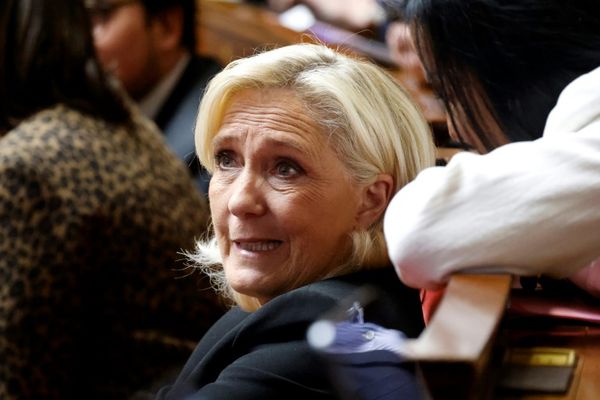China's military, economic and political ties with a weakened Russia a year after Vladimir Putin's invasion of Ukraine continue to deepen, even as Beijing presents itself to the West as a responsible global leader working toward peace.
Why it matters: China has cultivated an important strategic partnership without itself becoming an international pariah — an approach that is likely to continue as the war drags on.
- Beijing has not condemned Russia's invasion and appears to be largely following basic international conventions regarding the war. Chinese President Xi Jinping has warned Putin not to use nuclear weapons in Ukraine, and there's no evidence that China has sent direct lethal military aid to Russia — though the U.S. says Beijing is considering it.
Driving the news: China's top diplomat Wang Yi is expected to arrive in Moscow today after announcing on Saturday that Beijing has a plan to broker peace between Russia and Ukraine.
What they're saying: China "was not directly concerned in the conflict, but was not standing idly by," Wang said at the Munich Security Conference last week, adding the peace plan would be based on “the sovereignty of all countries."
- Western leaders appeared skeptical at this announcement, the Financial Times reported. “Who doesn’t want guns to stop firing? Except we have to be incredibly wary of the kind of traps that can be set,” Secretary of State Antony Blinken said at the conference.
- The peace plan is likely a "diplomatic ploy" aimed at persuading Europeans that China shares the same goals they do, Alexander Gabuev, a senior fellow at the Carnegie Endowment for International Peace, told Axios.
State of play: China is still paying a reputational cost for its support for Putin.
- Beijing has largely failed in its attempts to persuade Europeans that China doesn't support the war, alienating European leaders and bringing them closer to the more hawkish U.S. position on China.
- But Europe hasn't entirely soured on China either, as trade ties between Europe and China remain strong.
- Beijing's attempt to drive a wedge between European countries and the U.S. by encouraging Europe to exercise an "independent" foreign policy toward both Russia and China has also made little headway.
What's happening: Moscow has become increasingly reliant on Chinese companies and consumers as Western sanctions have isolated the Russian economy from much of the West. Chinese energy traders and companies have started to fill the void left by Western companies exiting Russia.
- China has bought deeply discounted Russian crude oil in recent months, as Western countries have stopped buying oil from Russia.
- Out of 60 automobile brands that sold cars in the Russian market before the war, only 14 are left — and 11 of those are Chinese.
- In late December, Russia opened the new "Power of Siberia" gas pipeline that will direct gas to China. The new pipeline is expected to help Russia make up some of its loss from Western bans on importing Russian energy, as well as help China meet its enormous energy demands.
Between the lines: With so much hanging on a close China-Russia relationship, it's unlikely a peace plan from China would significantly harm Russia's interests — and unlikely it would significantly support Western goals.
- Xi has no incentive to turn on Putin and support the Western position, no matter how many atrocities the Russian army commits in Ukraine, Gabuev said.
- "From China’s perspective, if [U.S. sanction on Russia] lead to regime change and a Western-friendly regime takes over, that’s a nightmare for China," Gabuev said.
What to watch: Chinese-Russian military cooperation increased last year, with more joint military actions on a larger scale, and may continue to grow.
- But it's unlikely China would start sending lethal military aid to Russia, Gabuev said, because "that would cross an American red line and destroy [Beijing's] line that they are not pouring gasoline onto the fire."







